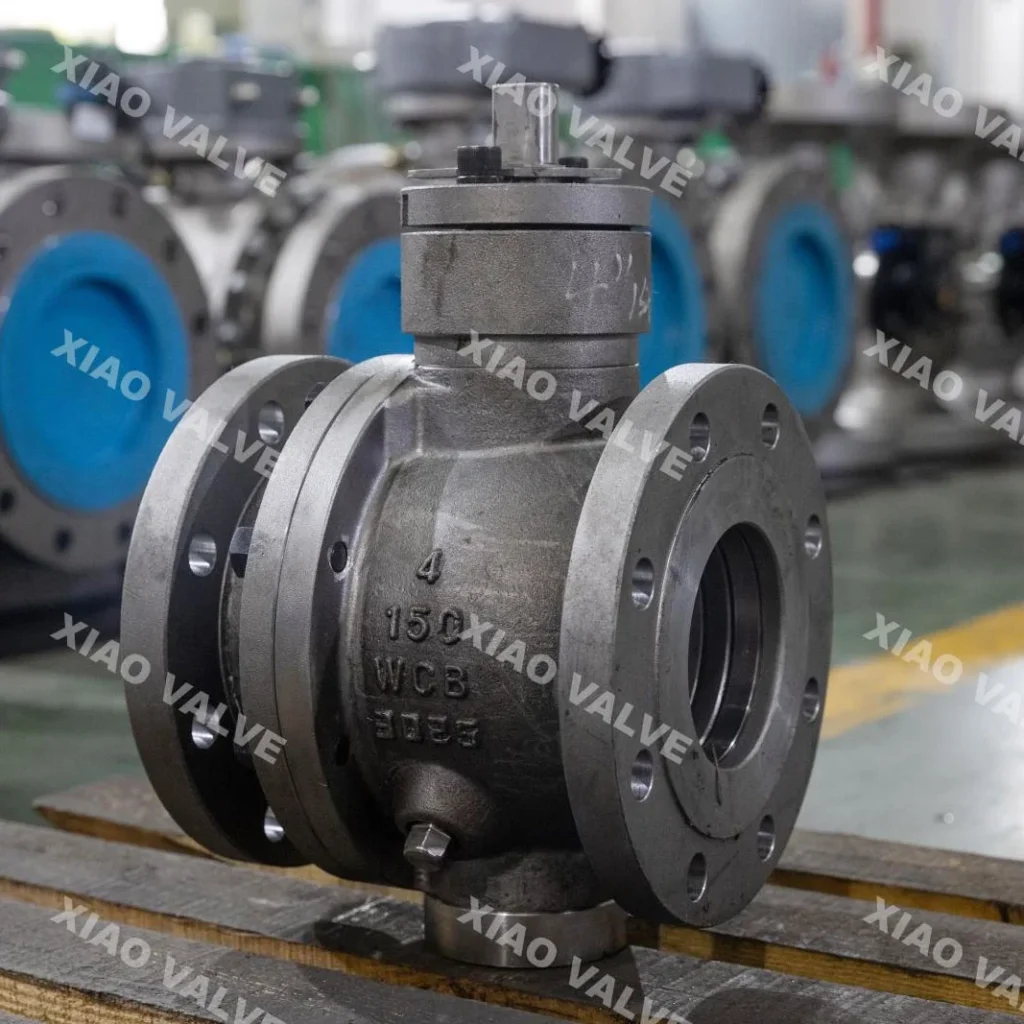Trunnion ball valves are very important parts in many factories. They help control the flow of liquids or gases in pipelines. When choosing a high pressure ball valve, one big question comes up: Should you go for forged metal or cast metal? Each type has its strengths and weaknesses. Picking the right one depends on your needs, your budget, and how tough the job is.
You can examine what forged and cast steel ball valves are. We will examine them in terms of strength, cost, and where they are best used.
A trunnion ball valve is a unique form of valve used to prevent or begin the flow in a pipe. The ball inside the valve has a hollow in the center. When the hollow space is up with the pipe, fluid can pass through. When you turn the valve, the water actions away from the pipe, and the drift stops.
The word “trunnion” means the ball is held in a region at both ends. This lets in the valve to handle higher stress. It also makes the valve much less complex to reveal, even though the pipe consists of thick fluids or gases. Trunnion ball valves are regularly applied in oil, gasoline, water, and chemical industries.
These API 6D ball valves are crafted from steel to remain longer and to stay cast under difficult conditions. But no longer are all metal valves identical. The manner the steel is made—either forged or cast—makes a large difference.

Forged metal is made via heating a forged piece of metal and pressing it into form the usage of high pressure. This method squeezes the metal tightly, disposing of air bubbles and making the shape very cast. The grain of the steel flows with the form, similar to wood grain. This offers it greater electricity and better regular standard performance.
On the other hand, forged steel is made through melting the metal and pouring it right into a mould. Once it cools and hardens, it takes the shape of the mould. This method is right for making complex shapes, but it can have tiny holes or inclined spots if no longer executed cautiously.
So, the principal difference is how the metal is fashioned. Forged steel is pressed into form, while cast metal is poured into shape. This difference impacts the electricity, excellence, and price of the valve.
When it comes to energy, cast steel is commonly better. Because it’s miles pressed tightly, it has fewer gaps or vulnerable spots. This makes cast trunnion ball valves casters and capable of better coping with stress. They are much less likely to crack or break, even in very hard situations.
Cast metal, even as strong, can also have tiny air holes or uneven parts interior. These can cause cracks or failure under high pressure. That is why a forged trunnion ball valve may not be the best choice for high-pressure or high-temperature jobs.
In terms of sturdiness, forged valves final longer in harsh environments. If you need a valve for long-term use in locations with high pressure, heavy drift, or extreme heat, forged is a better option.
But, for less stressful applications, such as in water structures or light chemical flora, forged valves can nonetheless paintings well and cost less.
Cost is a big factor in choosing between forged and cast trunnion mounted valves. Cast valves are cheaper to make. Since the process is faster and can handle complex shapes, the price is usually lower. If you are working with a tight budget, cast valves may seem like the better deal.
But don’t forget to think about the long-term cost. Forged valves cost more at first, but they last longer. They are casters and need fewer repairs or replacements. If your system deals with high pressure or important operations, a forged valve can save you money over time.
So, if you want a valve that lasts and keeps working without trouble, forged is often worth the extra cost. But if your use is simple and cost is key, cast valves are still a good choice.
Forged trunnion ball valves are best for:
These valves can handle tough jobs. They work well in places where safety and long life are very important.
Cast trunnion ball valves are great for:
These valves are good when the job is easier and cost is more important than extreme strength.

If you need high strength, long life, and can spend a bit more, go with forged. These valves are built to last. They give you peace of mind in hard jobs. If your work involves gas, oil, or chemicals under high pressure, forged is the better option.
But if you need a valve for a lighter task and you want to keep your costs low, cast trunnion ball valves are a smart pick. They still do the job well in many places, especially where conditions are not too harsh.
Every project is different. The key is to know what you need and match the valve to your job. Look at the pressure, the temperature, the fluid, and your budget. Then decide what fits best.
If you are looking for a trusted oil and gas pipeline valve manufacturer in China, you should check out XIAO Company. They have a cast name in the valve market. XIAO Company makes both cast and forged ball valves of high quality.
They use good materials, test their products well, and offer fair prices. Many businesses around the world trust XIAO Company for their industrial valve needs. Whether you need trunnion ball valves or other types like floating ball valves or metal-seated valves, XIAO Company has you covered.
